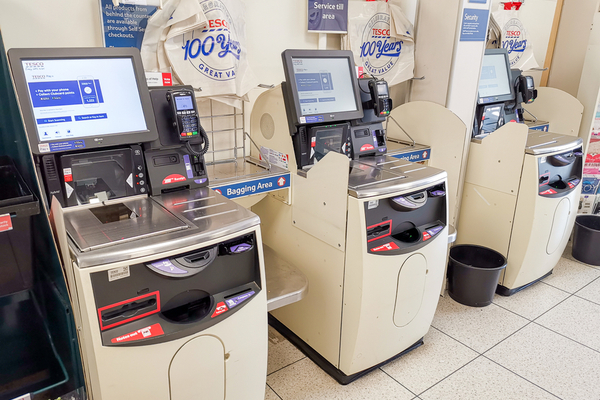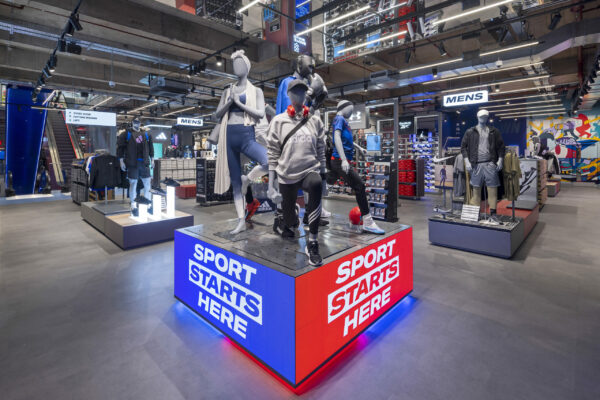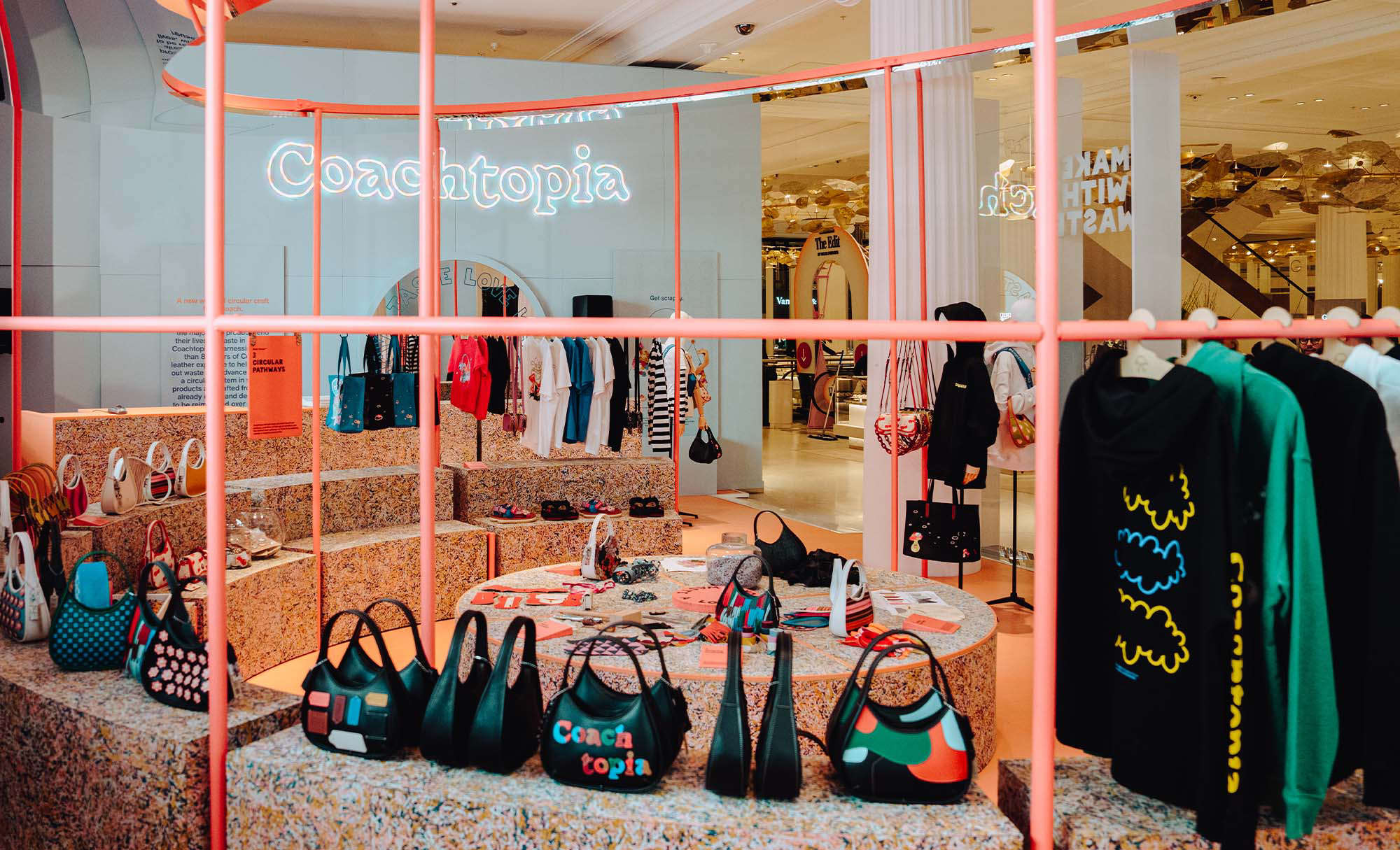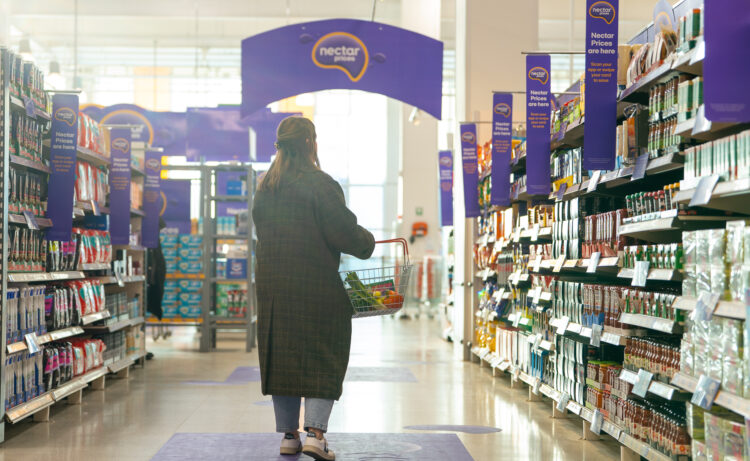Cash-strapped shoppers, unpredictable weather and an avalanche of loyalty schemes dominated headlines last year and the New Year is set to bring another year of instability for the retail sector.
An influx of mixed Christmas trading updates show that retailers will need to work harder and smarter to win over shoppers in 2024.
Retail Gazette takes a look at the key trends industry experts believe will shape retail in the year ahead.
Shoppers buy more food
As the rate of inflation continues to fall, experts predict that food retailers will see sales volumes return to growth after two years of subdued figures.
NIQ head of retailer insight Mike Watkins predicts the sector will see growth between 4 to 5% in 2024, with volumes up 0.5 to 1% for the year.

Early signs of a return to growth began to show in the final quarter of last year, with analyst firm Kantar reporting a 2% increase in sales volumes for December as the rate of grocery price inflation slowed to 6.7%.
However, retail consultant Nick Bubb warns that growth for the big supermarkets is “likely to be more subdued” in 2024 as the boost from grocery inflation falls away.
This will likely see more value messaging put forward by the big grocers in a bid to win over customers.
Asda has kicked off the year launching a price match campaign, matching the prices of hundreds of everyday products with both Aldi and Lidl, while Morrisons and Ocado have also launched new price drop campaigns.
Big ticket challenges

Home and DIY retailers are set to face another challenging year as the market grapples with the aftermath of the pandemic home improvement boom, experts predict.
Data from Barclaycard estimated that DIY and furniture retail spend both dropped 4.7% and 5.2% respectively in 2023 compared to the previous year.
Retail consultant and former Globaldata director Maureen Hinton suggests retailers face another year of tougher trading due to “a slow housing market, and the pandemic boom for home-related big-ticket items and technology delaying the replacement cycle”.
Topps Tiles reported a delayed start to 2024 last week as sales slipped 7.1% over the golden period, which the retailer attributed the ongoing challenges to discretionary consumer spending for its subdued trading.
Keen to avoid another year of flat sales, Ikea is confident its next round of price reductions across product lines will boost sales volumes after levels remained largely unchanged year on year.
Seasonless fashion
Last year’s unpredictable weather paired with budget-conscious shoppers will see seasonless fashion emerge as one of the top fashion trends for the year ahead.
Many retailers including H&M, Superdry and JD Sports suffered setbacks last year, with all three blaming “the abnormally mild autumn” and challenging consumer environment for weakened demand of its autumn winter ranges.
According to Very retail managing director Robbie Feather, consumers will favour more seasonless fashion this year to navigate another year of unpredictable weather and tightened budgets.
“Economic conditions mean many household budgets are stretched, and that’s unlikely to change soon,” he says.
“Customers are already making more considered purchases. This will continue, driving a focus on seasonless fashion.
“Shoppers will seek out timeless products that can be worn year-round and styled in multiple ways,” he says, adding that easy layering pieces will find themselves in many shopping baskets throughout 2024.
A human touch

2023 saw a flood of self-service check-outs introduced to many stores across the UK, with the likes of H&M, Zara and M&S all increasing the roll out of such machines in their fashion departments.
However, if 2023 was the year of the machine then experts anticipate that 2024 will see the return of the human touch.
“The continued growth of AI during the year means we must reckon with what it means to be human,” says Foresight Factory consumer trends editor David Crosbie.
“As AI becomes a fact of life, human encounters – the expectation that interactions across all channels should be natural and empathetic – will become a key trend to activate.
“Retailers will need to strike a balance between incorporating AI to drive efficiencies while at the same time not losing the human touch, for instance by allowing AI to handle routine inquiries, but reserving more complex tasks for human employees,” he adds.
Early signs of retailers looking to embrace the human touch more started to show when Booths scrapped its self-service checkouts in all but two of its 28 stores following calls from customers to scrap the machines.
More technology in store
That said, technology is still set to be rife in stores.
According to Accenture retail strategy and consulting managing director Matt Jeffers, the new year will see more retailers use technology as a vehicle to access new store formats allowing customers to access the full product range without significant space requirements.

“The pandemic-driven growth of online shopping has slowed and going into 2024, the in-store experience will be even more important as retailers must give their customers every reason to shop in person, with convenience and service at the top of the agenda.
“Some retailers are experimenting with robots in their stockrooms, or apps throughout stores that enable customers to book fitting rooms.”
Sports Direct has started introduced NFC tags in its Manchester flagship earlier this year, where shoppers can tap their phones to learn more about the various in-store ranges.
Similarly, The Fragrance Shop partnered with EveryHuman to introduce the UK’s first-ever AI fragrance creation machine in its Oxford Street store which opened last November.
The adoption of more in-store technology – on the shop floor and in the stock room – is also beneficial from an operational perspective, Jeffers adds.
“Retailers who invest in technology to enhance store efficiency, free up employee time through digital stock management, improved self-checkout options, quicker digital payment methods and more, will deliver a better experience whilst driving internal efficiencies too.”
Commercialising the circular economy
The circular economy has been gaining momentum over the last couple of years as more shoppers turn to pre-loved alternatives and look to repair instead of replace goods in an effort to save money.
The trend is set to continue in the year ahead with retail consultant Natalie Berg saying growth will once again be “fuelled by the desire or need for value” amid the ongoing cost-of-living crisis.
Barclaycard data shows that 46% of retailers already offer resale collections and Stylus content director Katie Baron anticipates that 2024 will see even more retailers move into commercialising repairs and pre-loved services.
Baron suggests that the trend will see new concept stores materialise where new products sit next to repair, alteration, preservation and authentication and validation stations.

Coach became one of the first big brands market leaders to do this when it launched its Coachtopia sub-brand, which reimagines the label’s iconic silhouettes using excess waste materials, and opened several concept stores including in London’s Shoreditch.
The second-hand trend, which was first “driven by the shadow of the climate crisis and cost-of-living struggles”, is now viewed as a “badge of cool” among Gen Z’s, says Baron.
She also anticipates a surge in consumers becoming “micro shopkeepers” as they sell their own second-hand goods.
“2024 will see consumers’ understanding of their possessions as assets to resell, trade or swap swell to new proportions – necessitating that brands lean into restoration, evaluation like never before,” Baron says.
Ebay extended its authenticity guarantee to fine jewellery late last year following a double-digit increase in demand for luxury items on the marketplace.
Battle of the loyalty schemes

Last year saw a record amount of loyalty schemes hit the market, with retailers either revamping existing member programmes or creating new ones to grow their market share.
Retailers including Sainsbury’s, Tesco and Waitrose to JD Sports, Robert Dyas and Ryman rolled out exclusive member pricing or offered shoppers cash back on their purchases.
Jeffers warns that the avalanche of loyalty schemes flooding the market could easily be seen as a route for cheaper pricing instead of encouraging loyalty.
“With more schemes on the market than ever, an environment where confidence is weaker, and spending choices are more carefully considered, many consumers are not emotionally engaged with retailers or schemes beyond ‘points’, member pricing and direct cashback,” he says.
As such, the loyalty scheme winners of 2024 will “need to invest in technology and AI to create more sophisticated and personalised loyalty rewards,” says Jeffers.
Some major retailers including Sainsbury’s and Tesco already offer a mixture of universal deals and personalised discounts based on shopping habits.
The data collected has also proven to be a profitable side venture, with both supermarkets making around £300m a year from selling information on individual shopping habits to third-parties.
Click here to sign up to Retail Gazette‘s free daily email newsletter


















